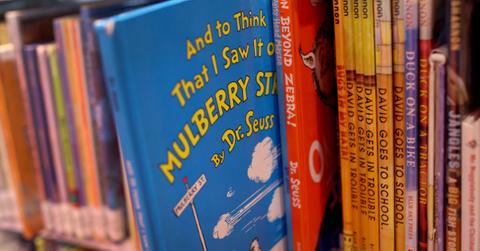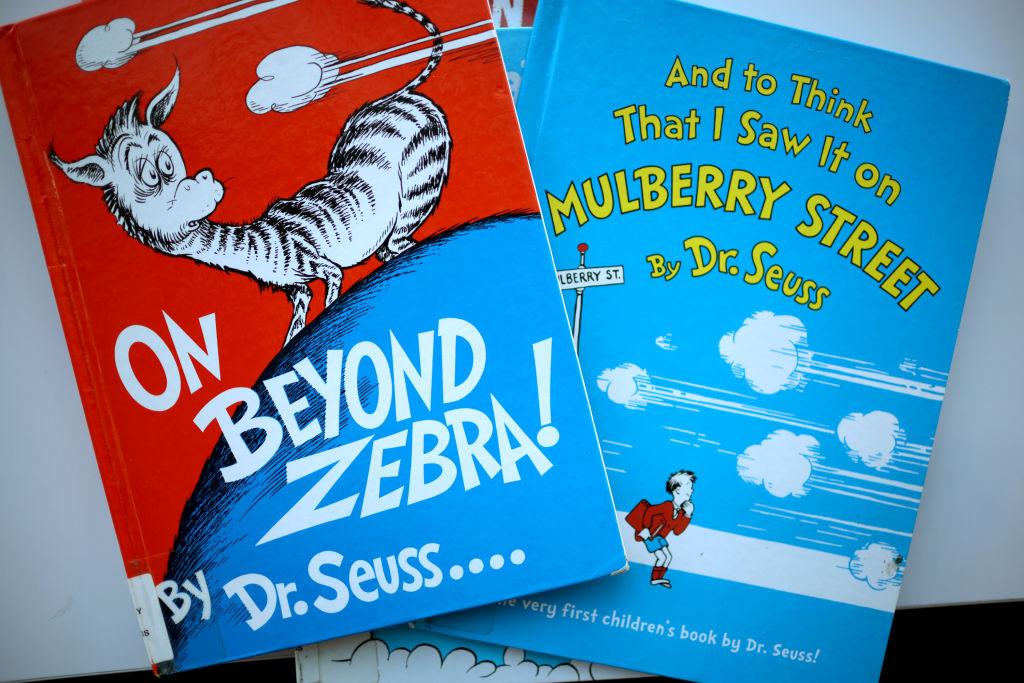Dr. Seuss Enterprises Is Ceasing Publication of 'And to Think That I Saw It on Mulberry Street' and Five Other Books
Published March 3 2021, 6:29 p.m. ET

Beloved children’s book author Dr. Seuss has recently come under fire for the problematic racial undertones that can be found in many of his books.
The controversy reached a peak when Virginia’s Loudon County announced that they were dropping Dr. Seuss as the main focus of Read Across America Day.
Following the school district’s announcement, the business that manages the publication of the late writer’s books has also announced that they will be dropping six titles by the author due to the racial stereotypes in the stories.
One of those books is And to Think That I Saw It on Mulberry Street, which many Dr. Seuss fans hold dear to their hearts. So, why is Mulberry Street offensive?
Why is 'And to Think That I Saw It on Mulberry Street' offensive?
Dr. Seuss’ books are beloved for their otherworldly characters, fun rhyme schemes, and salient life lessons, like the importance of being yourself or how to make the world a better place.
But in recent years, Dr. Seuss has come under fire for what critics are calling the racist depictions of certain groups in his books.

On March 2, 2021, the late author’s managers announced that they will no longer be printing six titles from Dr. Seuss’ repertoire, in light of the current discussions about racist tropes in the books.
In a statement, the managing company, Dr. Seuss Enterprises, said that they were making the decision in light of how the books “portray people in ways that are hurtful and wrong.”
One of the books being pulled from publishing is Dr. Seuss’ very first children’s book, And to Think That I Saw It on Mulberry Street.
The book was selected to be pulled from publication because it has outdated portrayals of Asian people. These include descriptions of a character described as Chinese as having slanted eyes, eating bowls of rice, and wearing conical hats.
It also captions an illustration of a man as “a Chinese man who eats with sticks.” The book, in particular this section, was actually altered in 1978 by Dr. Seuss himself.
"I had a gentleman with a pigtail. I colored him yellow and called him a 'Chinaman.' That's the way things were 50 years ago," he once explained. "In later editions, I refer to him as a 'Chinese man.' I have taken the color out of the gentleman and removed the pigtail and now he looks like an Irishman."
Dr. Seuss Enterprises said that the decision to pull Mulberry Street and the other books was made last year, after months of internal discussions that took into account the feedback the company was getting from parents, teachers, academics, and specialists in the field.
“Ceasing sales of these books is only part of our commitment and our broader plan to ensure Dr. Seuss Enterprises’ catalog represents and supports all communities and families,” the company said in their announcement, which happened to coincide with Dr. Seuss’ birthday.
They also explained that they made their decision by working with a panel of experts who reviewed the entire catalog of Dr. Seuss titles to determine which books contained offensive imagery and stereotyped descriptions of non-white characters.
While six of his titles may be getting the axe, that doesn’t mean all of Dr. Seuss’ beloved books are under threat.
The National Education Association, which is one of the largest teachers unions, only wants to de-emphasize the focus on Dr. Seuss books throughout Read Across America Day, rather than ban the books outright.
They instead suggest using the other Dr. Seuss books as a teachable moment to encourage students to explore the multi-faceted legacy of this still much-loved author.